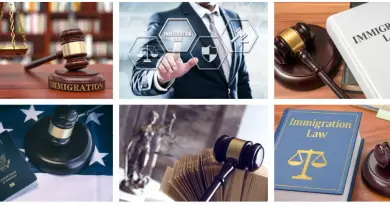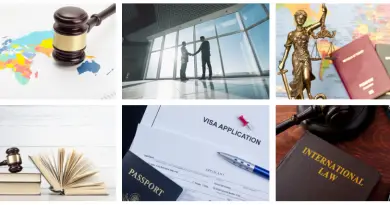Bankruptcy Law in Nigeria – All You Should Know
Bankruptcy is an ugly situation no business or individual wants to find themselves.
However, due to some unforeseen circumstances, some businesses and individuals find themselves filing for bankruptcy to manage their debt profile.
In this article, I’ll provide information on how bankruptcy works in Nigerian law and also give information on the bankruptcy act and the enforcement.
What is Bankruptcy?
Bankruptcy is a situation where a person or company (business) is declared by the law as being unable to pay their debts to creditors. In some countries, the term bankruptcy is only limited to individuals while other forms of insolvency proceedings are applied to companies. In Nigeria, the bankruptcy act applies to both individuals and companies.
Types of Bankruptcy in Nigeria
There are various types of bankruptcy that relate to individuals and companies. It is important to have a knowledge of the types to ensure you file for the right one that will raise you out of your financial incapability and burdens.
Note: You can only file for the type of bankruptcy that is compatible with the Nigerian legal system. It is advisable you speak with your lawyer beforehand. In addition, the type you file depends on several factors like whether or not you are an individual or part of an organization.
Do you own a business? Do you want to own a business?

Hot New Exclusive Training By A Professional Videographer Reveals 7 Amazing Secrets of Creating Stunning Product Videos That Can Make Huge Profits for Any Business in Nigeria...Using Just Your Smartphone!
YES, I WANT ACCESS TO THE EXCLUSIVE TRAINING FOR FREE
Liquidation Bankruptcy
Is the most common type and it involves the trustee selling off all non-exempt assets held by the debtor to repay the debts owed by the debtor to the fullest extent. The portion of the debt that remains unpaid through liquidation is discharged. This type can be filed by individuals, companies, and partnerships.
Chapter 11
It involves the debtor filing for bankruptcy but maintaining ownership of all assets and performing normal business activities. The debtor simply tries to work out a reorganization and payment plan to pay off creditors.
Chapter 13
This is similar to that of Chapter 11 but can only be filed by individuals. The debtor retains ownership of all assets and goes about with normal business operation and works out a repayment plan to pay off debtors. In this type, some portion of the debt may be discharged but there are limits on the amount of debt involved.
Related
- Law in Nigeria (The Complete Guide)
- A Guide on Power of Attorney in Nigeria
- How to Start the Process of Divorce in Nigeria
- List of Places to Study International Law in Nigeria
- A Guide on Criminal Law in Nigeria
- How to Win a Contract in Nigeria
What is Bankruptcy Act of Nigeria?
The Bankruptcy law or the Bankruptcy act came into place in the Nigerian constitution of 1990 and was amended by the Bankruptcy (Amendment) Decree of 1992.
It’s over 29 years since the law came into being and over 20 years since the Bankruptcy rules came into force. This means that it should be enforceable by the creditor if such a situation arises in the event of a failed investment.
However, that doesn’t seem to be the case in the Nigerian legal system as the enforcement of the bankruptcy act is not really implemented due to the fact that the laws are not quite direct or straightforward.
Do you own a business? Do you want to own a business?

Hot New Exclusive Training By A Professional Videographer Reveals 7 Amazing Secrets of Creating Stunning Product Videos That Can Make Huge Profits for Any Business in Nigeria...Using Just Your Smartphone!
YES, I WANT ACCESS TO THE EXCLUSIVE TRAINING FOR FREE
The Process of Bankruptcy in Nigeria
Bankruptcy is a quite complicated legal process and involves two main parties in the process – the debtor and the creditor. The debtor can be an individual, company or organization and the creditor can be a company or organization.
The type of debt owed is considered when filing for bankruptcy. There are different types of debts which include secured debts, discharge debts, and non-discharge debts.
Secured debts simply mean that the creditors have the legal right to obtain property or service belonging to the debtor if the debtor fails to make proper payments.
Discharge debts are debts that can be erased by filing for bankruptcy while non-discharge debts cannot be erased by filing for bankruptcy. In other words, the debtor will be held accountable for non-discharge debts.
Filing for bankruptcy has to follow a process as stated in the Bankruptcy Act, which involves 9 parts – Part I to Part IX.
Part I: This bothers on the filing of bankruptcy by the debtor, who is then publicly examined and a committee is set up to handle the proceeding. The property of the debtor is also examined in this part.
Part II: This involves the proof of debts, where the creditor or debtor will have to show proof of the debt owed and the amount involved is then taken into consideration. The property and assets owned by the debtor that would be used to repay the debts are also considered.
Part III and Part IV involve the examining of the official receiver and the trustee.
Part V: This explains the power of the court and the procedure to follow in the proceedings as stated by the constitution.
Part VI bothers on the disobedience to Order of Court either by the debtor or creditor.
Part VII discusses the disqualification of bankruptcy and the penalties and offences associated with it.
Part VIII explains bankruptcy offences in details which would include fraudulent debtors, false claim, bankrupt guilty of gambling, bankrupt absconding with property, trial and punishment of offences and so on.
Part IX involves the interpretation of the act.
Is Bankruptcy Law Enforceable in Nigeria?
The law is enforceable in Nigeria but the process of filing is cumbersome and makes bankruptcy almost insignificant.
A number of lawyers in Nigeria are not conversant with the bankruptcy laws. This can be attributed to the non-application of the law in Nigeria.
Do you own a business? Do you want to own a business?

Hot New Exclusive Training By A Professional Videographer Reveals 7 Amazing Secrets of Creating Stunning Product Videos That Can Make Huge Profits for Any Business in Nigeria...Using Just Your Smartphone!
YES, I WANT ACCESS TO THE EXCLUSIVE TRAINING FOR FREEDue to the high expense rate of filing and going through the proceedings, most clients would prefer to settle their financial issues out of court.
If you decide to go ahead with the process, it is important you confirm that your lawyer is conversant with the laws and provides you with a detailed explanation of the implications.
What Others are Reading
- Nigeria Law Today (The Complete Encyclopedia)
- How to Get Free Legal Advice in Nigeria
- List of Must-Read Law books for Every Nigerian
- Where to Get Nigerian Immigration Lawyer
- Power of Attorney in Nigeria (The Complete Guide)
- How to Start Divorce Proceedings in Nigeria
- Where to Study International Law in Nigeria
- Criminal Procedure Law in Nigeria & Practice (The Complete Guide)
- How to Successfully Get & Win a Contract in Nigeria
- All You Need to Know About Contract Law in Nigeria





Thank you Barrister for this informative piece.
I am a student and looking up reads on the internet on the subject of bankruptcy. I must note that this has thrown some light on the subject and I really appreciate.
Regards
You’re welcome.